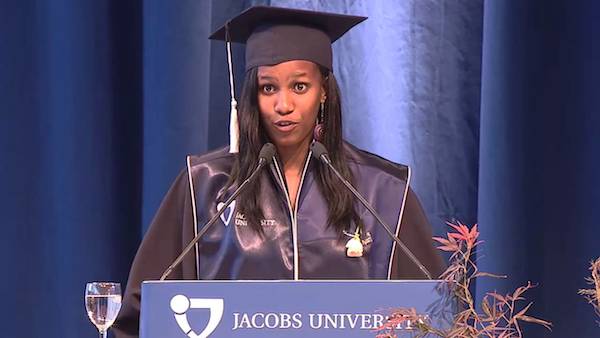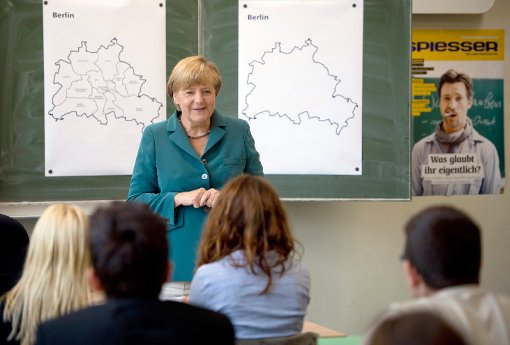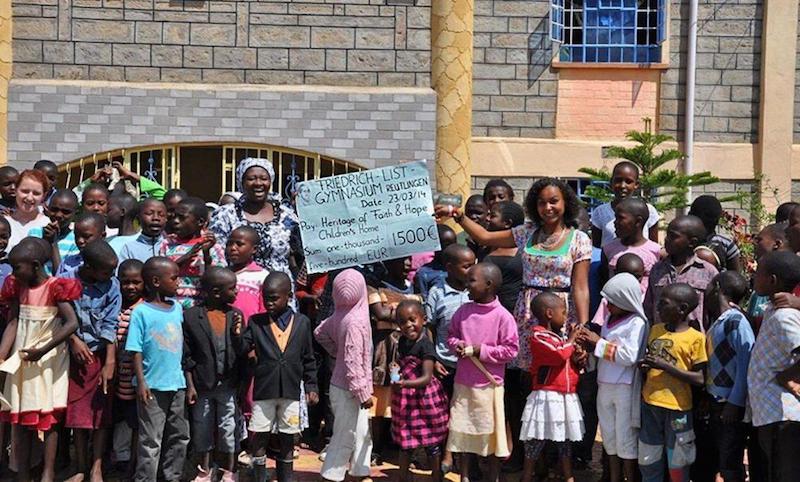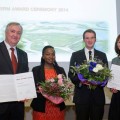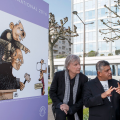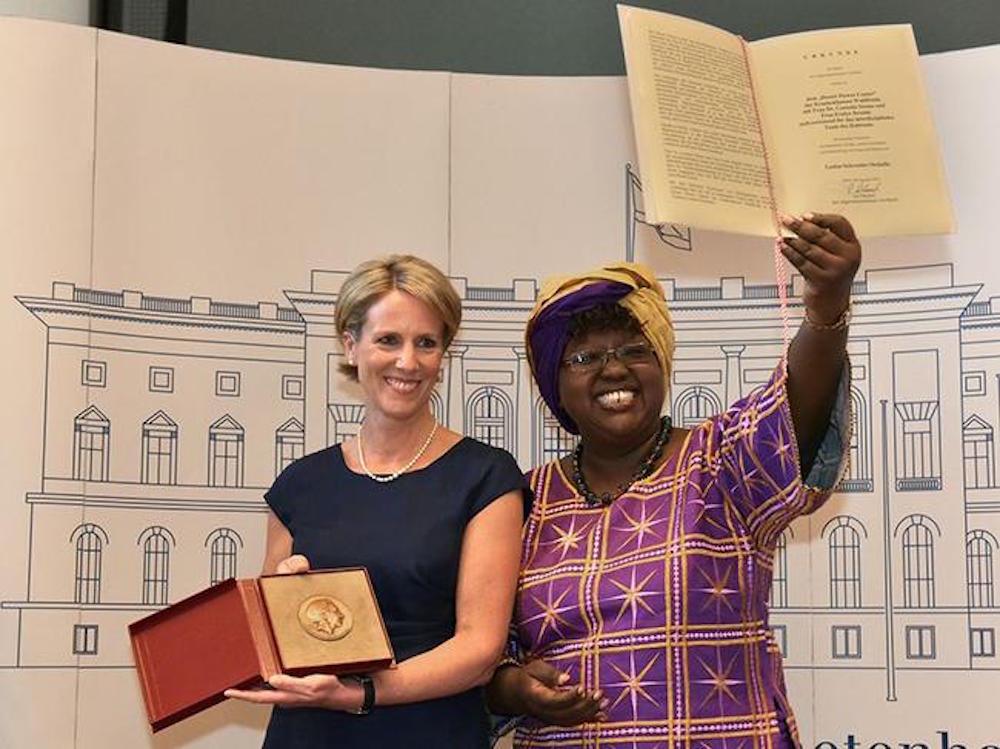
Kenyan Evelyn Brenda of the Berlin-Zehlendorf Desert Flower Hospital Center-Waldfriede, is one of this year’s recipients of the annual Louise-Schroeder-Medal.
You might remember her for her work against Female Genital Mutilation (FGM) and supporting of women sufferring from Fistula, we covered part of her story here. (READ:Providing a Safe Haven for the “Desert Flowers”)
Together with her colleague Dr. Cornelia Strunz, Brenda accepted the award from the Berlin House of Representatives in a ceremony held on 21 April 2016. The Desert Flower Hospital Centre was established on September 11, 2013, to give medical and psychosocial assistance to women suffering from negative side effects of Female Genital Mutilation (FGM). With its expertise in intestinal and pelvic floor surgery, it lends itself well to treating victims of FGM.
According to the World Health Organization FGM is described as a “partial or total removal of the external female genitalia, or other injury to the female genital organs for non-medical reasons”. FGM’s immediate complications include severe pain, haemorrhage, bacterial infection and injury to surrounding genital tissues.
The centre’s patron Waris Dirie, the Somalia-born former supermodel and one-time movie star, is a renowned campaigner against FGM. Dirie has always tried to create awareness on the practice, which she once described as “a brutal crime” according to Spiegel Online. The practice has also taken route in Germany among communities originating from FGM practicing countries.
In June 2013, the German parliament redefined FGM as a criminal offence, punishable with a jail term of up to 15 years. Previously, it fell under the grievous bodily harm category, with sentencing restricted to a maximum of ten years.
According to reports, FGM remains commonplace in nearly 30 countries in western, eastern, and north-eastern Africa, even though many of them have either signed or ratified the 2003 Maputo Protocol, which calls for an end to FGM. It is associated with a social and cultural requirement for girls before marriage, to ensure of sexual chastity and fidelity.
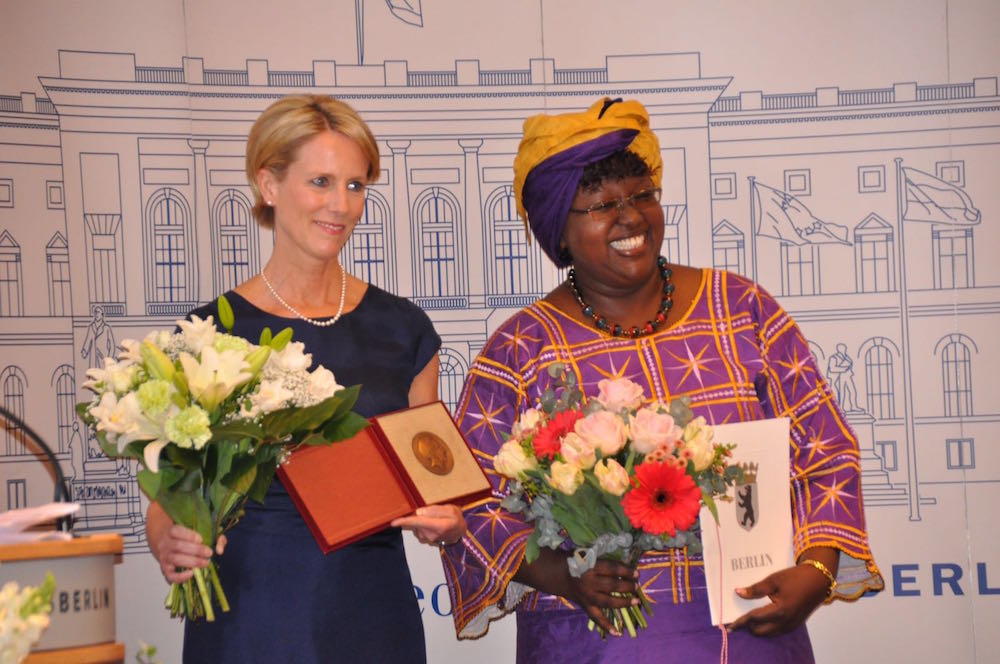
It is for the fight against FGM and outstanding work, that the Berlin House Speaker presented to Brenda and Dr. Strunz an award that symbolises a personal and institution legacy of what Louise Schroeder stood for.
Schroeder (April 1887 to June 1957) dedicated her life to tireless community involvement and advocacy for the equality of women. Her name is well known for her commitment towards democracy, to the participation of women in politics and for the fight against injustice and abuse of power. Since 1919, Schroeder was a member of parliament and from May 1947 to December 1948 the Mayor of Berlin. She gave a long lasting service to the city of Berlin, and contributed towards the alleviation of distress in post-war Berlin.
The Louise-Schroeder-Medal was instituted in 1998 on the initiative of women parliamentarians of the Berlin House of Representatives. Until 2002, the medal was awarded following a proposal from the Bureau of the Chamber of Deputies and the Mayor. In 2001 and 2002, the procedure was changed to include proposals by the Berlin House of Representatives. In 2003, the right was again transferred from the Mayor to the House of Representatives. Since then, the Louise-Schroeder-medal is awarded annually, every 2nd of April, a day that falls on her birthday, by the President of the Berlin House of Representatives.





